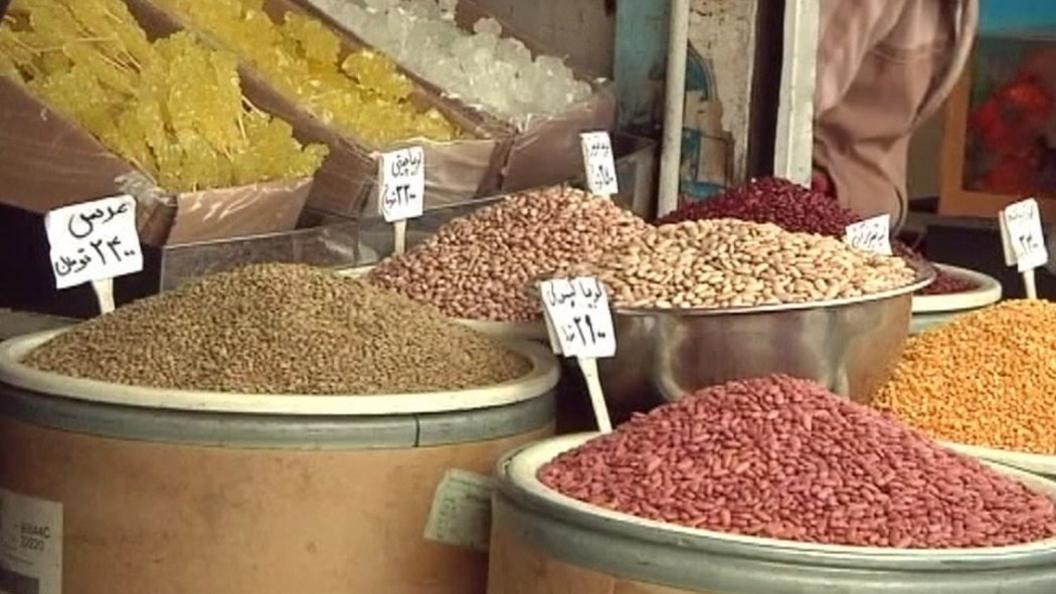Iran police clash with protesters over currency crisis
- Published
Amateur footage purportedly of unrest in Tehran
Riot police in Iran have clashed with protesters in the capital over sharp falls in the currency, the rial.
Tear gas was used to disperse the demonstrators, some of whom were setting fire to tyres and rubbish bins. There were many arrests, reports say.
Eyewitnesses told the BBC that scores of people gathered outside the central bank, calling for the governor to stand down, chanting anti-government slogans.
The rial has plummeted to record lows against the US dollar in recent days.
Money dealers were joined by traders from the nearby central bazaar, reports say.
Amateur video footage posted online appeared to show hundreds of people marching towards Iran's central bank.
Eyewitnesses told BBC Persian that riot police fired tear gas to disperse the crowds.
Reports say many shops in the central Grand Bazaar brought down their shutters in sympathy with the demonstrators.
Traders are angry at the lack of direction from the government in the crisis, which they say has led to more instability in prices and made trading almost impossible, according to commentators.
Viewers of BBC Persian television in Iran reported that authorities began jamming the channel's signals on two satellites after the London-based Persian-language channel reported the Tehran protests.
Arrests
The head of Tehran's bazaar unions, Ahmad Karimi-Esfahani, said shopkeepers had not opened their businesses as they were "worried about security" but he expected them to reopen on Thursday.
A protest outside the bazaar started with a small group and then grew, he told the Iranian Labour News Agency (Ilna).
One eyewitness, who gave his name only as Omid, told the BBC that the Sabze Maydon area within the bazaar was closed down and some shop windows were smashed.
He said the government had closed the currency exchange shops, hoping to curtail the turmoil.
A senior Iranian police commander confirmed to Ilna that "a limited number of people protested in front of the bazaar," but he said the bazaar was not closed.
Hundreds of police are also reported to have rounded up and arrested illegal money changers in the capital.
Tehran's bazaar is traditionally the biggest financial ally of the Iranian regime. The bazaar is said to have bankrolled the 1979 Islamic revolution.
The political core of the bazaar is the Islamic Allied Society or Motalefeh, a political group loyal to Iran's Supreme Leader Ayatollah Ali Khamenei.
The protests were clearly targeting President Ahmadinejad's government, accusing it of mismanagement and inefficiency in curtailing Iran's currency crisis, says BBC Persian's Amir Paivar.
One woman in the city of Malayer told the BBC that Iranians were "very angry with the regime".
"The situation is becoming worse and worse every day," she said.
"I work in the main hospital in the city and we are encountering some serious problems. We can't buy necessary medication because prices go up by 70% a day."
President Ahmadinejad has blamed Western sanctions for the fall in the rial, saying they amounted to an economic war.
However, many Iranians accuse him of financial mismanagement.
US officials say the slide reflects the success of US economic sanctions targeted at Iran's controversial nuclear programme.
Even so, US Secretary of State Hillary Clinton said the Iranian government should bear responsibility for what was happening inside Iran.
"They have made their own government decisions - having nothing to do with the sanctions - that have had an impact on the economic conditions inside of the country," she said.
"Of course the sanctions have had an impact as well, but those could be remedied in short order if the Iranian government were willing to work with the P5+1 and the rest of the international community in a sincere manner," she added, referring to a negotiating group including the five permanent members of the UN Security Council and Germany.
Meanwhile, Ayatollah Khamenei said in a speech that the Iranian people would never submit to pressure from abroad.
Iran would put this crisis behind it, he was quoted by Iranian news agencies as saying.
- Published3 October 2012
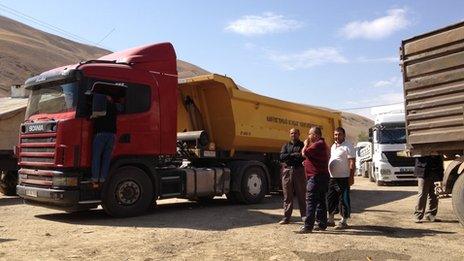
- Published2 October 2012
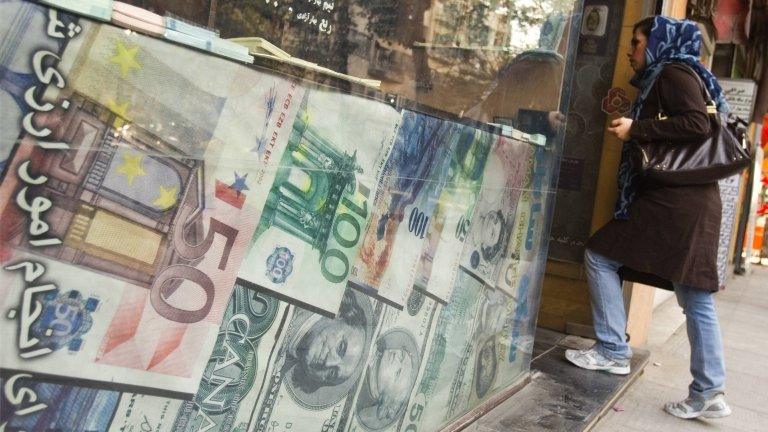
- Published1 October 2012
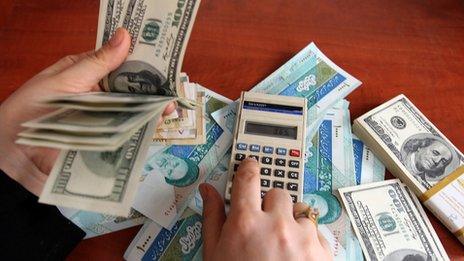
- Published30 March 2015
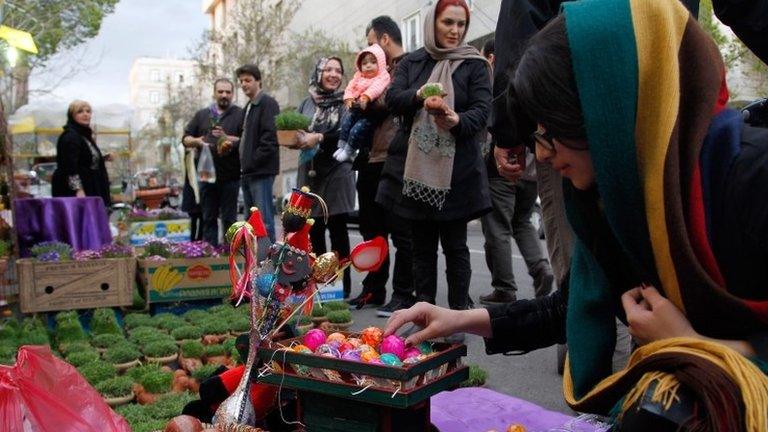
- Published30 September 2012
